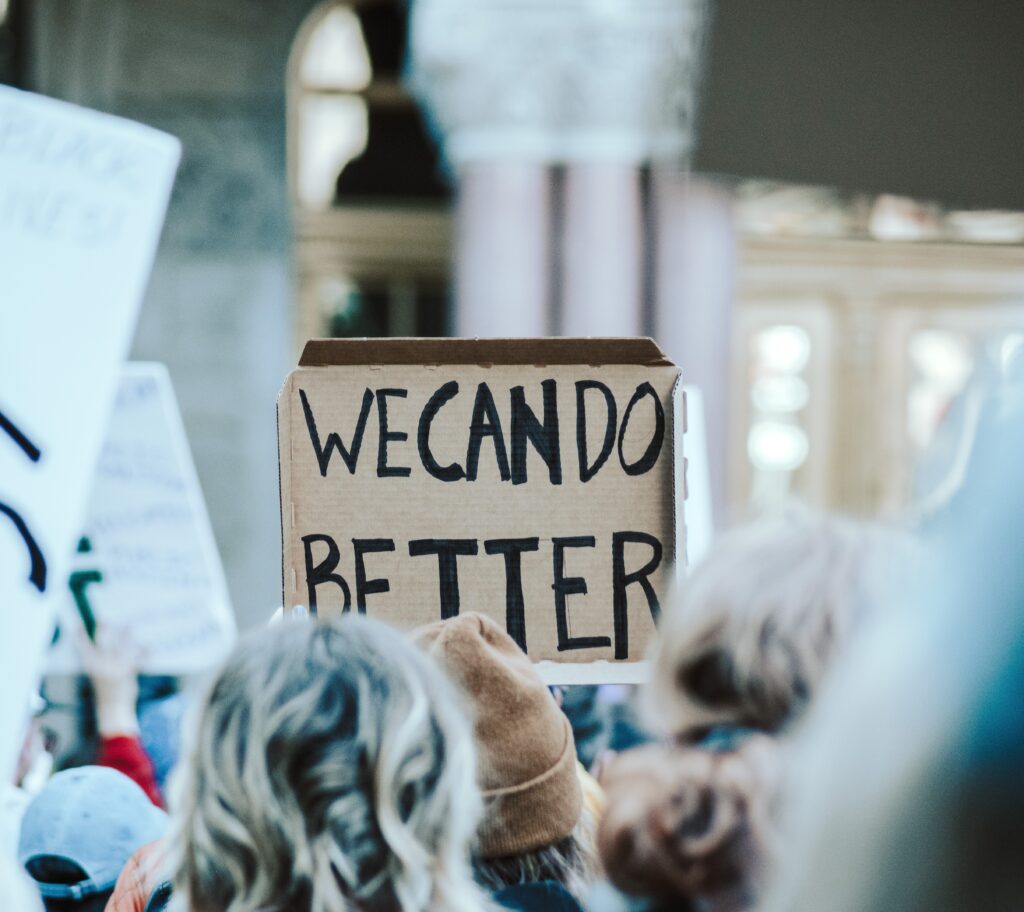It’s no secret that every generation thinks that the ones that come after them are a worse generation than they are. Surprisingly enough there’s even a word for it, it’s called Juvenoia.
Old man Socrates thought the youth of his time was disobedient and lazy, the Jazz loving youth of the ‘20s was thought to be in “moral decline”, Boomers in the 60’s were seen as too anti-establishment (how ironic) and Gen X were seen as apathetic and disengaged compared to their activist elders of the 60’s. You get the idea, basically we all think we’re hot shit and it’s only downhill after us.
However it feels like Gen Z gets hit with the criticism of being the worst generation arguably more than past generations and admittedly at times it’s not unwarranted (I’m looking at all you idiots who ate Tide pods and snorted condoms).

So I’ve decided to go through some of the most common criticisms levied against Gen Z’s to see if they are warranted or just blown out of proportion.
Short Attention Span:
Social media has undoubtedly eroded our ability to focus. You need to look no further than TikTok, where some people are unable to get through a 60 second video unless there is a game of Minecraft or subway surfer playing underneath to keep their attention from wandering.
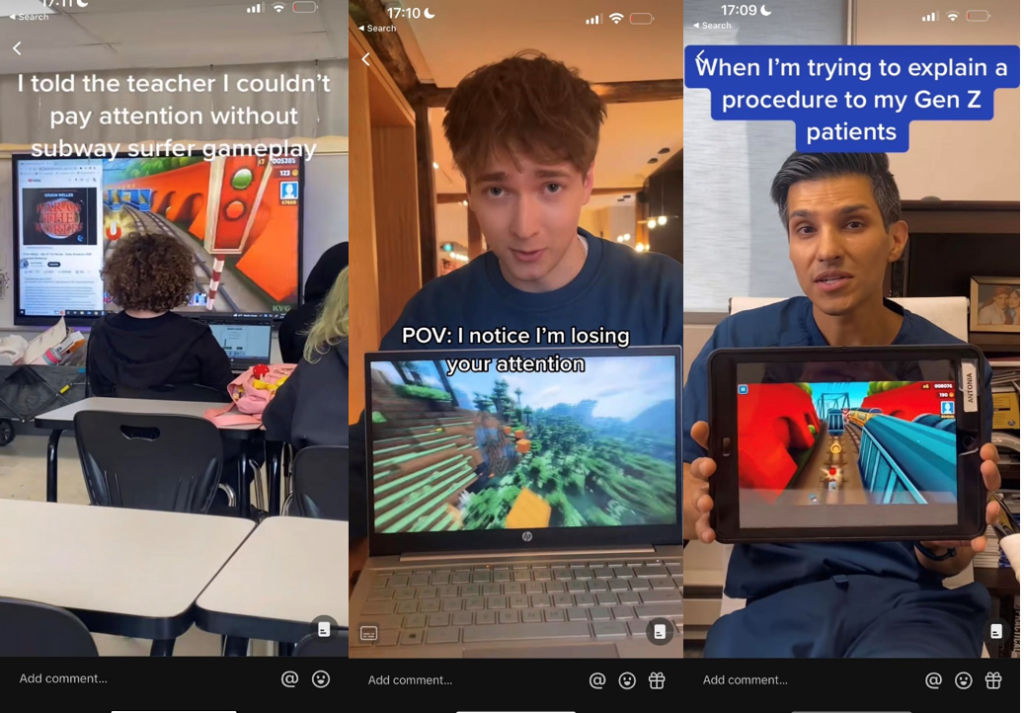
The rising ADHD rate speaks for itself , everything needs to be instant and immediate, it’s gotten to the point where if a web page doesn’t load within 2 seconds I’ll reload it or just leave it altogether. We would have suffered in the dial up era.
Unfortunately this fast paced lifestyle manifests itself in other unpleasant ways, like the tendency to jump to conclusions and having a “the headline tells me all I need to know” mentality. Is jumping to conclusions a uniquely Gen Z trait? No, Facebook moms and WhatsApp aunties have been doing it for years.
But coupled with the ability to spread information (or misinformation) at a break neck pace, it makes rapid consumption of content on a purely surface level a much more harmful issue than in years past, since Gen Z has a tendency to share a lot of the content they see to their followers on social media.
Now is it entirely the fault of Gen Z for being victims of a dopamine hamster wheel designed to keep people glued to their phones and consume a never ending sea of content? Also no, but it’s a trait that we have succumb to rather than overcome and we have to hold some accountability for that and try to do better at being more present by slowing things down and being more attentive.
Over-Dependence on Technology:
Having grown up right alongside technology, Gen Z has grown accustomed to being table to solve nearly every problem with the touch of a button. The concern is that between things like Google and the rise of ChatGPT, Gen Z is quickly losing the ability to think critically for themselves or problem solve without relying on technology or the internet.
And while I agree with the critical thinking critique, that’s about as far as I can agree with this criticism.
I have found that the default argument for our so called dependence on technology is this hypothetical scenario of “well what if you didn’t have it to rely on, then what?” But that argument is equivalent to Math teachers back in the day saying you won’t always have a calculator in your back pocket. Barring some apocalyptic level event, there is no foreseeable reality where the internet and technology isn’t always readily available to you.
So if you have access to all known human knowledge in recorded history sitting in your back pocket, you would be an outright idiot to not use it. You are literally putting yourself at a competitive disadvantage.
In a world where technology progresses at an exponential rate it would seem to me like the smart move is to lean into it’s usage and learn it’s intricacies instead of falling behind the times. We are not over dependent on technology, we are just utilising the resources of our time to the best of our advantage.
So the next time a boomer gives out to you about relying on technology too much, unplug their internet router and see how long it takes for them to come to you to solve the problem.
Lack of Resilience:
Some people claim that because Gen Z has grown up in an age of convenience and “personal online bubbles”, they may lack resilience and the ability to cope with differing opinions or challenging situations.
One of the places I’ve seen this first hand is in work. Gen Z advocate heavily in the idea of “knowing your worth”. Since they have more options than any prior generation when it comes to finding work, Gen Z are far more likely to pack it in and walk away if they’re not happy at their current job.
So while it’s great that they refuse to be overworked and underappreciated , it has reached a stage where people give out about having to do even the bare minimum tasks at work and being asked to do anything even slightly above that is expected to be met with an exponential pay raise.
The instantaneous need for immediate reward has definitely eroded our ability to persevere through adversity and see the benefits of doing upfront work in favour of long term pay off.
The ever growing popularity in public figures like David Goggin’s and Jocko Willink also lends to the idea that people are in search of more resilience in their lives, as the pair often promote messages of hard work, persistence and self-improvement.
Truth be told this is a topic that deserves an article all it’s own but I’m hard pressed to find an argument against this opinion.
Financially Irresponsible:
“If this generation stopped buying super duper mocha frappe coffees every day and cancelled their Netflix subscriptions then they could afford to buy a house and blah blah blah” I can’t take this argument seriously when it comes directly from the mouths of the people responsible for making it a struggle to merely exist in todays economic climate.
Financial responsibility seems a lot less appealing when the outcome of all your penny pinching results in you being no closer to any beneficial outcome like owning property or having a pension that you’ll actually be able to access since it seems the government hopes you kick the bucket before you ever reach their ever increasing pension age.
So if I’m screwed either way I’d much rather do it with a Starbucks in my hand, a takeaway in my belly and re-watching Suits for the 5th time on my overpriced Netflix account.
If anything I’d argue that Gen Z is more financially driven than they are irresponsible. More and more young people choose to start their own businesses, work side gigs to earn extra money and invest in new opportunities like crypto currencies. The opportunities presented by the internet for financial freedom has made it more accessible than ever before to make money and every day I see young people on the internet doing exactly that.
Less Socially Adept:
The argument here is that life behind a screen and the constant use of social media has ironically made our generation have worse social skills than previous generations. After all learning to navigate social complexities through the filter of a screen is pretty damn difficult, if not impossible.
I can see why some might see it that way, love has been replaced by a superficial swipe right or left, sex replaced with porn, meeting for coffee and chats is replaced with just texting. I’m not saying all these things are bad, in moderation they’re perfectly normal and useful but they should never be an outright replacement for real life.
On top of everything the biggest contributor to this social dilemma has been Covid-19. Being social is a skill just like any other, meaning that the more you do it the better you get at it. Vice-versa the less you engage socially the worse you become at it.
So you can imagine that 2+ years of social seclusion did not do Gen Z any favours, considering many of us were in the middle of college or just entering the workplace when the pandemic first hit. A time where social connection is crucial to our development not just personally, but for our social circle. These factors have all contributed to a what is now being called “loneliness epidemic”.
With the post pandemic push to get people back into the office, companies like Deloitte and PwC have noticed the difficulty of collaborating with a workforce who are strangers to in person teamwork, citing that these younger workers are less confident and “struggling with stress in a way we haven’t seen before”.
So unfortunately it seems as though this criticism is closer to fact than opinion.
Politically polarized:
Politics is like a pendulum, in that you can be sure that if the world moves in one direction, over a long enough period of time it will swing in the complete opposite direction. That is why we are seeing a rise in right-wing conservative ideology beginning to push back against the left oriented norm that has propagated much of western culture, media and policy over the past 2 decades.
But unless you’re an extremist chances are you sit somewhere in the middle of the spectrum, agreeing and disagreeing with both sides depending on the situation.
Politics is tricky because you often hear more about it online and in the news than in person. So it’s difficult to gauge weather the extreme views expressed on both sides of the isle online actually reflect the truth about how people feel in real life.
Nowhere will you find a bigger example of that than the 2016 U.S presidential election, where online opinion made it seem like Hilary’s victory was all but guaranteed, only to be upset by overwhelming support for Trump on the day of the election. Most likely because it was social suicide to publicly support the man so his popularity was grossly underreported and misrepresented in the media.
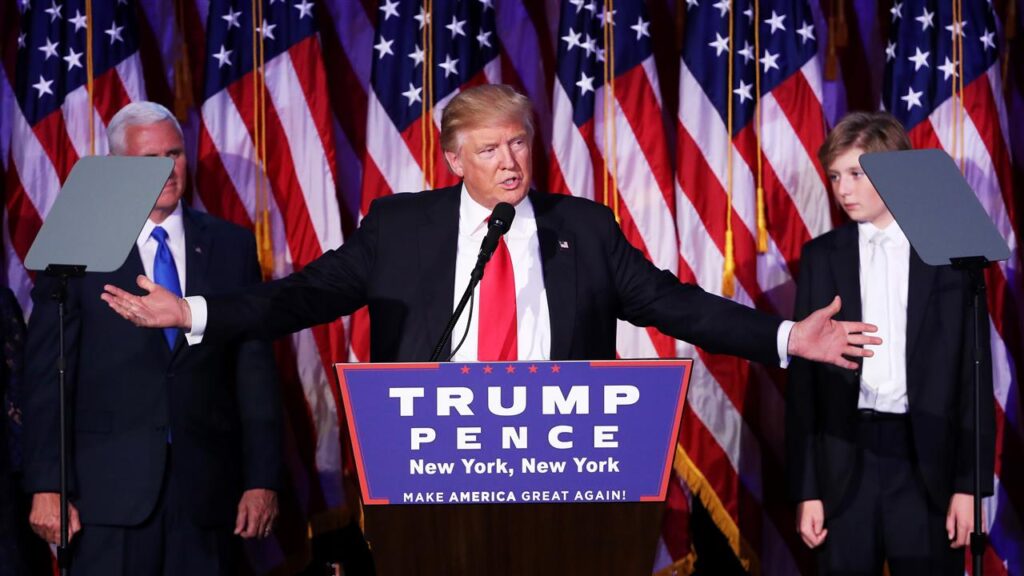
There has never really been a time in human history where people were 100% in agreement when it comes to politics. The only time a country unanimously supports everything the government does is when it’s under the threat of tyranny (and even then there are those who resist).
So is it fair to say we are politically divided? Sure, but we won’t know whether this divide is something serious and generation defining or blown out of proportion until we see it’s consequence some years down the line.
So from where I’m sitting to say we’re politically polarized more than any generation has been in the past is a bit of a stretch.
Armchair activism
Gen Z is a generation that’s highly vocal about social issues and are keen on making change. However this online rhetoric doesn’t necessarily translate to actionable real world change.
Don’t get me wrong, there is undoubtably value in spreading awareness for important social issues, but there has become a type of complacency where people feel like simply resharing a post will somehow cause change in the real world. Awareness is important, but action is essential when it comes to change.
Activism has become somewhat of a token gesture, in that many people post about certain issues just to avoid scrutiny from the vocal public masses and make themselves look like a “good person”. This creates a weird bubble where it appears that an important issue is getting traction and more support than it actually is. When in reality people just share a post and do nothing else to contribute to the cause they are promoting
Symbolic activism is nothing new, but what stands out with a lot of these social media driven protests is the absence of an objective. It feels performative, as if the act itself is the sole goal. Take the road blocks happening worldwide at the moment caused by the social climate activists.
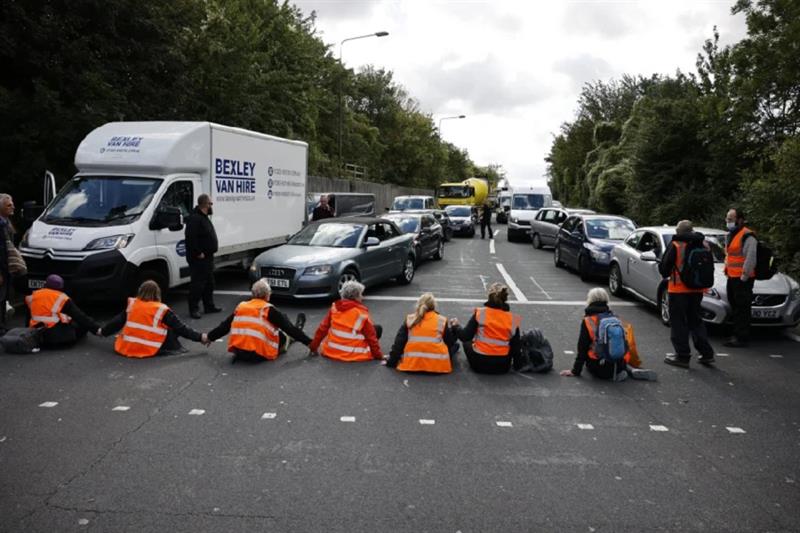
What is their ultimate objective? Do they have a list of step by step demands politicians can use to implement change rather than a childish tantrum with an unrealistic demand that all fossil fuel usage be stopped immediately? And most importantly why does it feel like they are actively alienating the general public and making them resent the protestors rather than garnering support for them?
I have to say of all the critics on this list I might have to agree with this one the most.
Hyper critical
Nuance seems to be a dying art in our generation and people are extremely quick to try cancel somebody for any mistake they make, big or small, that doesn’t conform to the trending social norm of the time. Even if that mistake is over a decade old. A fact that both James Gunn and Kevin Hart learned the hard way when they were both cancelled for some highly insensitive old tweets.
Not all mistakes are created equal and some people definitely deserve to be cancelled for the skeletons in their closet. But some definitely don’t deserve the disproportionate backlash they get for their offence.
So while people should definitely be held accountable for their words and their actions, the way Gen Z vilifies even minor indiscretions, leaves little room to acknowledge growth and the fact that people change over time and can be remorseful about their past mistakes.
My favourite example of handling a delicate situation with class is Warner Brothers addressing the racially insensitive comedy that was heavily present in old Looney Tunes cartoons and their rational for refusing to change it.
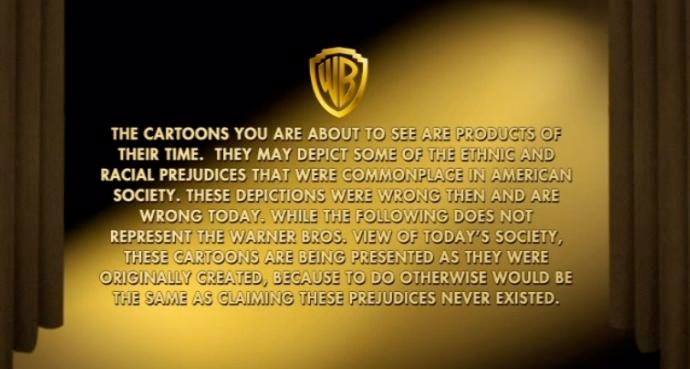
I think Gen Z would be wise to remember the phrase “people who live in glass houses shouldn’t throw stones”, because some of the people doing the cancelling now could very well be on the opposite side of the pitchfork in 20 years’ time when social norms are vastly different than they are today.
instant fame and validation
You will often hear celebrities downplay being called “an overnight success”. They attribute their success to years of unseen dedication and hard work to get to a position of triumph. This sentiment held true for many years but social media has made it possible for people to literally become viral stars overnight. This has justifiably led to the criticism that Gen Z are obsessed with getting fame or “clout chasing”.
Arguably the best example being the infamous YouTube “prank era” in which channels would do increasingly outlandish and often mean spirited things under the guise of ”pranks” in the hopes of going viral.

But you know why I bring up that era specifically? All of these top prank channels like Roman Atwood, Vitaly Zdorovetskiy, Sam Pepper etc. were not Gen Z. Many of them were already well into their 20’s during the heyday prank era around 2014-2016.
I think it’s safe to say that given the opportunity most people would prefer to be a media personality getting flown to New York for paid brand deals rather than commuting to the office 5 days a week to hear Karen complain about her divorce.
The want for fame and validation is not a uniquely Gen Z trait. It may feel that way now because more and more young people are creating content and finding fame and success in the things they post.
There are certainly those that would argue that these creators are gaining fame for no reason, having no talent or skill to justify their star. To that end I argue, in an attention economy is it not a skill to be able to keep someone from scrolling on to the next thing and keep them present for the duration of your video or post?
Given the opportunity I think more people than not would choose to have some level of fame rather than a mundane lifestyle. The only difference is Gen Z has more opportunity to do so than any generation that came before, so can you really fault them for trying?
conclusion
So as it turns out Gen Z is not in fact perfect, shocking I know. But we’re not exactly the worst either. As with any generation, the characteristics of Gen Z are a mixed bag of positives and negatives, and we are shaped by the unique challenges and opportunities of our time. You can never paint an entire generation with a broad brush, but that won’t stop some people from trying. I’ve no doubt that even after all the heat we’ve taken for being the worst generation we’ll turn around and call out Gen Alpha for being worse than we ever were. That’s just the circle of life.

